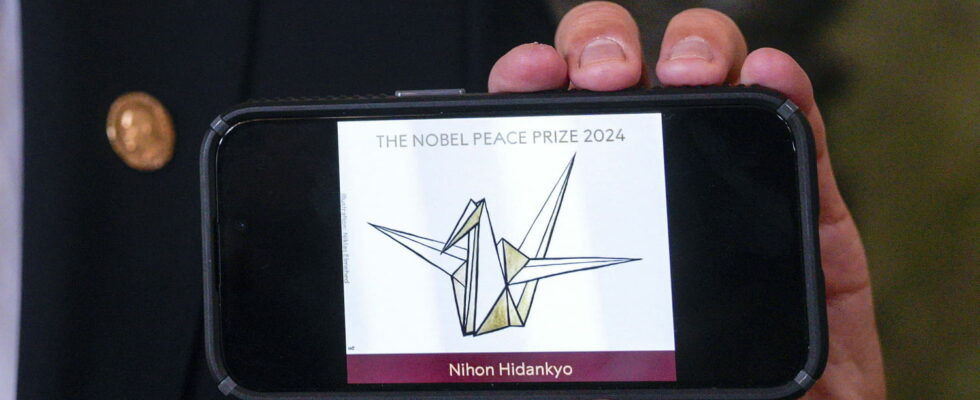This Friday, the Japanese organization Nihon Hidankyo received the Nobel Peace Prize for its commitment against nuclear weapons.
The Nobel Peace Prize was awarded this Friday, October 11 to the Japanese organization Nihon Hidankyo. She was recognized for “her efforts to achieve a world without nuclear weapons and for demonstrating through testimony that nuclear weapons should never be used again.” It is a consecration for the organization which had already been in the running in 1985, in 1994 and in 2015.
This price falls as the year 2025 will mark 80 years of these explosions. Nuclear threats are also made in current conflicts, notably by Vladimir Putin and the North Korean dictator Kim Jong-Un. The Iranian nuclear program is also feared in the context of military escalations with Israel.
Nihon Hidankyo is a confederation of survivors of the atomic bombings of Hiroshima and Nagasaki, founded in 1956. Its leaders are all Hibakusha, terms designating the victims of these atomic bombings. The Japanese organization’s first mission was to push the government of its country to allocate rights to victims of the bombings. Then, it focused more on the fight against the use of nuclear weapons and their financing.
Strong actions and moving testimonies
Nihon Hidankyo presents three main objectives on its site : the “prevention of nuclear war and the elimination of nuclear weapons”, “compensation by the State for the damage caused by the A-bomb” as well as “the improvement of current policies and measures of protection and assistance to the Hibakusha”.
To achieve its objectives, different types of actions are put in place. First of all, for prevention, the organization provides testimonies from victims, thus raising awareness of the real after-effects left by such a disaster. She also speaks for the Hibakusha at the UN and shares declarations against nuclear tests and exercises. In addition, she is working on the promulgation of a law to assist victims, including state compensation for these people as well as for bereaved families. This can involve “signature campaigns, marches, sit-ins”. Finally, she undertakes to “provide advice and other assistance to the Hibakusha in their health and life difficulties”.
